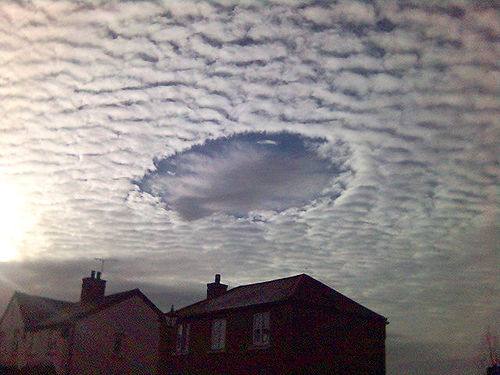If an asteroid with a diameter of 500m to 1,000m falls into the Pacific Ocean, it will stimulate a large amount of evaporated seawater, thereby creating an ozone layer.
The conclusion comes after a team of scientists at the Tucson Institute of Planetary Science (USA) conducted a computer simulation of the phenomenon.

Frequency hole Ozone. (Artwork: Internet)
Seawater with a high concentration of evaporated salt will cause an ozone hole. By then the Earth's surface will suffer the highest ultraviolet radiation ever in history.
Previous research has shown that an average asteroid every 500m or less will collide with the Earth every 200,000 years and will have a relatively large planet colliding with the Earth every 800,000 years.
The study shows that there are more than 100 asteroids between 1,000 and 2,000 meters in diameter that operate in an increasingly closer way to Earth's orbit.
According to the forecast of the US Aerospace Agency (NASA), about 800 asteroids operate in the direction of increasingly closer to Earth.
Because the ability of asteroids to fall into the sea is twice as high as falling to the mainland, this study focuses on analyzing the status of asteroids falling into the sea.
The computer simulation results show that an asteroid with a diameter of 1,000 meters when falling into the sea will affect the area with a diameter of more than 1,000 km, which will cause large amounts of water to evaporate and cause high water column. 160km.
The asteroid 500m in diameter falling into the sea can produce ultraviolet rays 20 times higher or higher, will even maintain for months in the northern tropical region. Meanwhile, the planet 1,000 meters in diameter when falling into the sea will produce the largest radiation value up to 56 times.
The ozone frequency gap will increase the rate of skin cancer and cataract development. Status of ultraviolet ray index up to 56 times has never appeared in history, so its impact will be very difficult to imagine.
In addition, the study found that medium-sized planets falling into the sea would make growing crops difficult, global food production decline. So scientists recommend that farmers soon choose some plants that are able to resist strong ultraviolet rays, while increasing food storage to ensure adequate supply of food when entering the period. reduced food production.
 Van Allen's belt and evidence that the Apollo 11 mission to the Moon was myth
Van Allen's belt and evidence that the Apollo 11 mission to the Moon was myth The levels of civilization in the universe (Kardashev scale)
The levels of civilization in the universe (Kardashev scale) Today Mars, the sun and the Earth are aligned
Today Mars, the sun and the Earth are aligned The Amazon owner announced a secret plan to build a space base for thousands of people
The Amazon owner announced a secret plan to build a space base for thousands of people